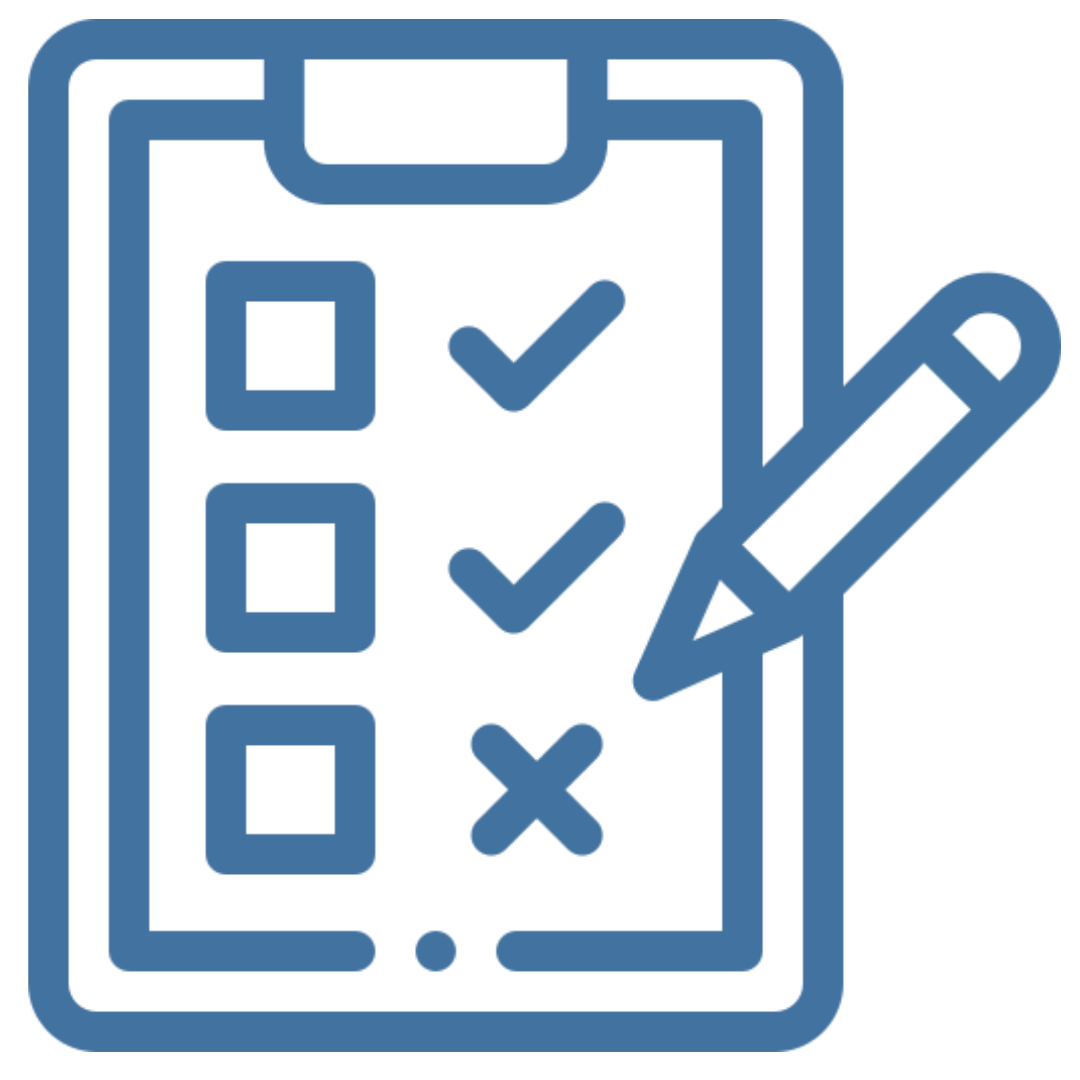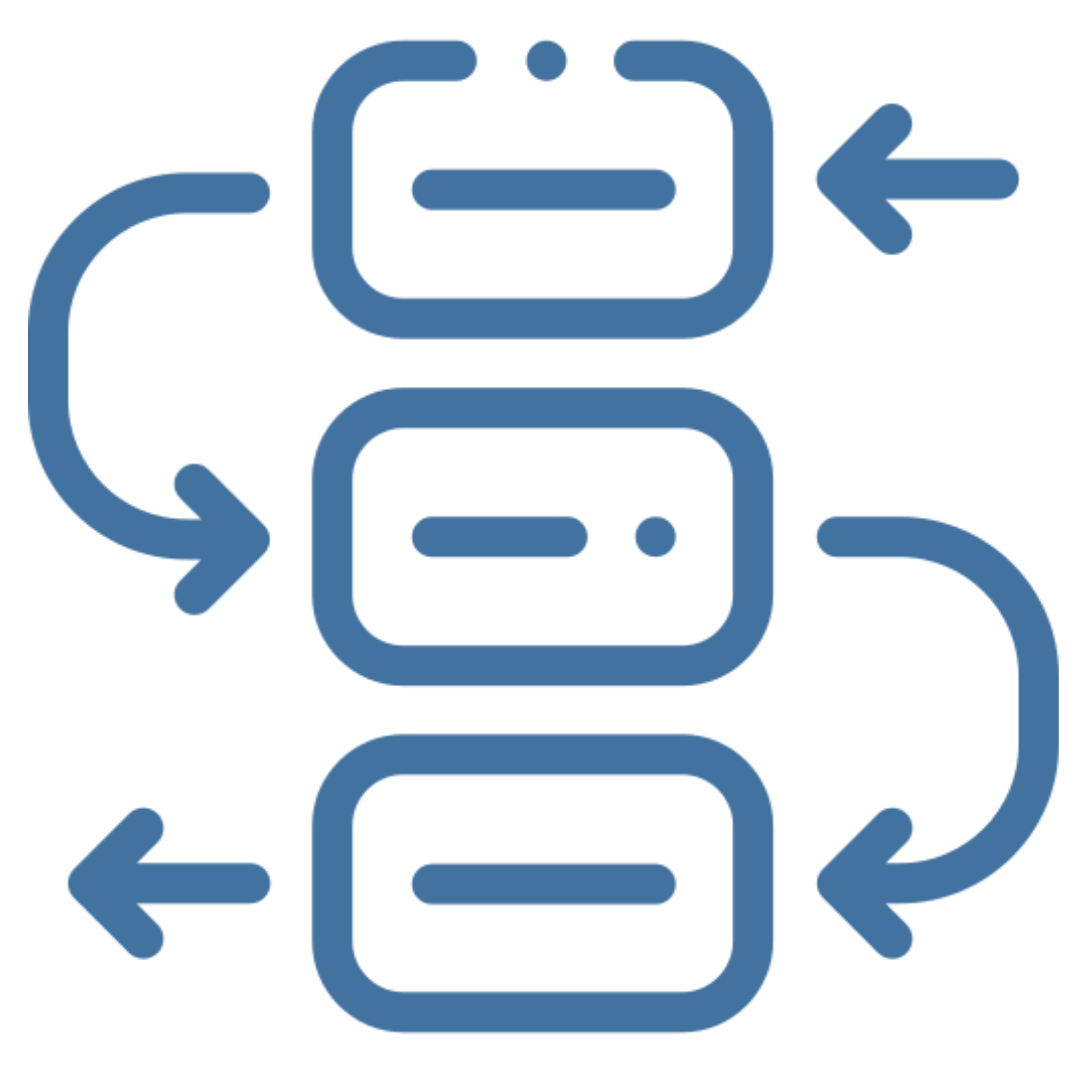HR Outsourcing for Startups: Your Complete Guide

Your startup is only as strong as the people you hire. In a competitive market, you’re not just competing on your product or service; you’re competing for talent. Large corporations have a huge advantage with their robust benefits packages and dedicated HR teams. So how do you level the playing field? This is where hr outsourcing for startups becomes a powerful competitive tool. Partnering with a PEO, for example, gives your small team access to enterprise-level health insurance and retirement plans you couldn't secure on your own. It sends a clear message to top candidates that you’re invested in your people from day one.
Key Takeaways
- Treat HR Outsourcing as a Strategic Investment: Partnering with an HR expert is more than just offloading tasks; it's a way to gain access to top-tier benefits, ensure compliance, and free up your time to focus on scaling your business.
- Define Your Needs Before You Shop: Before evaluating partners, create a clear list of your biggest HR pain points—whether it's compliance, benefits, or payroll. This internal clarity is the most important step in selecting the right model and partner for your startup.
- Manage the Partnership for Long-Term Success: Your work isn't done after you sign the contract. Build a successful relationship by setting clear goals, establishing a communication plan, and providing regular feedback to ensure your HR partner truly supports your company culture and growth.
What Does It Mean to Outsource HR?
When you’re running a startup, you wear a lot of hats. Founder, CEO, salesperson, and often, the unofficial head of HR. But as your team grows, so does the administrative burden. That’s where HR outsourcing comes in. At its core, outsourcing HR means delegating your human resources functions to an external specialist. Instead of hiring an in-house HR manager, you partner with a firm that handles these tasks for you.
This is a strategic move that gives you access to a team of experts in payroll, benefits, and compliance without the overhead. For a startup, this means you can offer competitive benefits and stay on top of complex labor laws, helping you attract and retain top talent. A PEO broker can help you find the right partner to manage these critical functions, letting you focus on what you do best: growing your business.
What HR Tasks Can You Hand Off?
You can outsource nearly any HR function you can think of, from the routine to the complex. The beauty of it is that you get to choose what makes sense for your business. Many startups begin by outsourcing the most time-consuming and critical tasks, like payroll processing and benefits administration. This ensures your team gets paid correctly and on time, and gives them access to health insurance and retirement plans you might not be able to secure on your own. As you grow, you can hand off more, including recruiting, onboarding, and managing compliance. A good HR partner helps professionalize your operations quickly and effectively. It's always smart to check out their success stories to see how they've helped businesses like yours.
How Does HR Outsourcing Work?
The process is pretty straightforward. You partner with an external HR provider, like a Professional Employer Organization (PEO), and they take on the administrative responsibilities you’ve agreed to delegate. This partnership allows you to streamline your HR, reduce risks, and reallocate your time and resources back to your core business goals. Instead of spending hours figuring out payroll taxes or researching health plans, you can focus on product development and customer acquisition. Your outsourcing partner becomes an extension of your team. They handle the backend administration while you maintain control over your employees, business decisions, and company culture. Our team follows a clear process to assess your needs and match you with the perfect HR partner to make this transition seamless.
Common Myths About Outsourcing HR
Let’s clear up a few common misconceptions about outsourcing HR. The biggest fear I hear from founders is the loss of control. Many believe that handing over HR means giving up authority over their team and culture. In reality, the opposite is often true. By outsourcing the administrative tasks, you free yourself up to be a more present and strategic leader. You’re still in the driver's seat for all the important decisions; your partner just handles the execution. Another myth is that outsourcing is only for large corporations. The truth is, startups have the most to gain. It gives you access to enterprise-level benefits and expert guidance that would otherwise be out of reach. If you have concerns, you can always book a free consultation to discuss your specific situation.
Why Outsource HR? The Benefits for Startups
As a startup founder, you’re used to wearing multiple hats. But the HR hat—managing payroll, benefits, compliance, and employee issues—can quickly become heavy and distracting. Outsourcing your HR isn't just about offloading administrative work; it's a strategic move that frees you up to build your business. By partnering with experts, you can save money, reduce risk, and get back to the work that only you can do. Let's look at the key benefits for your startup.
Save Money and Scale Smarter
Hiring a full-time, experienced HR manager is a significant expense that many early-stage startups can't justify. HR outsourcing gives you access to a complete team of specialists for a fraction of the cost. This approach helps you "professionalize your human resources function quickly and cost-effectively, supporting rapid growth." Instead of a fixed salary, you pay for the services you need, making it a flexible solution that scales with you. This is one of the most effective cost-reduction strategies a growing business can implement, allowing you to invest that capital back into your product, team, and marketing efforts. It sets you up with a professional HR foundation from day one, without the hefty price tag.
Gain Instant Access to HR Experts
Unless you have a background in human resources, you’re likely learning as you go. Outsourcing immediately closes that knowledge gap. It "involves delegating HR functions to external specialists, allowing startups to access expert services without the overhead of an in-house team." Suddenly, you have experts in payroll, compliance, and risk management on your side. This is especially valuable when it comes to creating competitive compensation and benefits packages. An experienced employee benefits broker can help you access top-tier health insurance and retirement plans, making it much easier to attract and retain the talent you need to grow.
Stay Compliant and Reduce Risk
Keeping up with employment law is a full-time job, especially in states with complex regulations like California. One misstep with payroll taxes, workers' compensation, or employee classification can lead to audits and expensive penalties that a startup can't afford. Handing these tasks over to an HR partner shifts the burden of compliance to professionals who are dedicated to staying on top of every legal change. By outsourcing these key tasks, you can build a strong, compliant foundation for your company. This proactive approach to risk management gives you peace of mind, knowing that your business is protected and your HR practices are sound.
Get Back to Growing Your Business
Your time is your most valuable resource. Every hour you spend wrestling with HR administration is an hour you’re not spending on product development, talking to customers, or planning your next big move. Outsourcing streamlines your HR, mitigates risks, and helps you "reallocate resources to core business." It allows you to trade in the tedious paperwork for strategic thinking and execution. By letting experts handle the complexities of HR, you can refocus your energy on your company's vision and growth. Understanding our process can show you just how simple it is to get started and reclaim your time.
Your HR Outsourcing Options
Once you decide to hand off some of your HR tasks, you’ll find a few different models for getting support. Each one offers a different level of service, from handling specific projects to becoming a full-fledged partner in your business. Understanding these options is the first step to finding the right fit for your startup’s unique needs and budget. Let's walk through the most common choices.
PEOs (Professional Employer Organizations)
Think of a PEO as an all-in-one HR department for your startup. When you partner with a PEO, you enter a co-employment relationship. This means the PEO becomes the official employer of record for your team, sharing employer duties with you. They handle payroll, tax filings, and benefits administration under their own tax ID number. A major advantage for startups is that PEOs group small businesses together, giving you access to enterprise-level employee benefits and workers' compensation rates you couldn't get on your own. This comprehensive model is a popular choice for founders who want to offload the bulk of their HR administration and compliance worries.
ASOs (Administrative Services Organizations)
An ASO is similar to a PEO but without the co-employment model. They can manage your payroll, benefits administration, and other HR tasks, but everything remains under your company’s own tax ID number. An ASO acts more like a vendor handling specific administrative functions. While they provide significant support, they typically don't offer access to their own employee benefits plans or handle workers' compensation insurance in the same way a PEO does. This can be a good fit for businesses that want to maintain more direct control over their benefits and insurance policies while still outsourcing the day-to-day administrative work.
HR Consultants and Other Specialists
If you don't need a comprehensive, ongoing solution, you can hire HR consultants or specialists for specific projects. This is an à la carte approach to HR. For example, you might hire a consultant to help you write your first employee handbook, recruit for a key position, or set up a performance review process. This model allows you to access expert services for specific needs without the cost of a full-time hire or a long-term partnership. It’s a flexible option for startups that have a handle on most HR functions but need expert guidance in a few key areas.
How to Choose the Right Model for You
The best choice depends entirely on your startup’s stage, size, and specific pain points. If you’re struggling with compliance and want to offer competitive benefits to attract top talent, a PEO is often the strongest contender. If you already have great benefits but are buried in payroll paperwork, an ASO might be enough. And if you just need help with a one-off project, a consultant is your best bet. Before you decide, map out your most pressing HR needs, consider your budget, and think about how much administrative responsibility you want to retain. A clear evaluation process will help you pinpoint the model that supports your business goals.
What HR Functions Should You Outsource?
Deciding to outsource HR doesn’t mean you have to hand over everything at once. The beauty of it is that you can delegate specific functions to external specialists, letting you keep control where you want it and get expert help where you need it most. Think of it as building your ideal HR support system piece by piece. As your startup grows, you can always adjust what you outsource. Most founders start with the time-consuming, high-risk tasks and expand from there. Let's walk through the most common HR functions that startups choose to hand off.
Payroll and Benefits
Payroll and benefits are usually the first things to go off a founder's plate, and for good reason. Managing payroll is more than just cutting checks; it involves calculating taxes, handling deductions, and ensuring every detail is compliant with federal, state, and local laws. One small mistake can lead to big headaches and penalties. By outsourcing, you get an expert who lives and breathes this stuff. Plus, when it comes to benefits, partnering with a PEO can give your small team access to the kind of high-quality, affordable employee benefits that are typically only available to large corporations. This is a huge advantage when you're competing for top talent.
Recruiting and Hiring
Finding the right people can make or break your startup, but the hiring process is a full-time job in itself. Outsourcing your recruiting and hiring helps professionalize your approach from day one. An HR partner can handle everything from crafting compelling job descriptions and screening resumes to conducting initial interviews and managing background checks. This frees you up to focus on the final candidates and make the best decision for your team. A great partner will have a proven track record, so it's always a good idea to look at their success stories to see how they've helped other businesses like yours grow their teams effectively and efficiently.
Compliance and Risk Management
Keeping up with employment law is a dizzying task, especially in states with complex regulations. From workers' compensation and workplace safety to employee classifications and handbook policies, the rules are constantly changing. Falling out of compliance can put your entire business at risk. An HR partner acts as your compliance watchdog, mitigating risks and ensuring your startup is always on the right side of the law. This proactive approach is one of the smartest cost-reduction strategies you can implement, saving you from potential fines and legal battles down the road while giving you incredible peace of mind.
Employee Relations and Training
Great company culture doesn't just happen—it's built. But when you're busy building a product, it's easy to let people-focused initiatives slide. An HR partner can provide the specialized expertise needed to handle sensitive employee relations issues, manage performance reviews, and develop training programs that help your team grow. They can help you create a supportive and productive environment where people feel valued and have clear paths for advancement. Following a structured process for people management ensures you’re not just reacting to problems but actively building a strong, resilient team that’s ready to scale with your business.
How to Pick the Perfect HR Partner
Choosing an HR partner is a lot like hiring a key team member. You’re bringing someone into the fold who will have a major impact on your company and your employees. It’s a decision that deserves careful thought, not a quick Google search and a prayer. The right partner will feel like a natural extension of your team, freeing you up to focus on what you do best: growing your business. The wrong one can create headaches, drain resources, and frustrate your employees.
So, how do you find "the one"? It starts with looking inward at your own business and then outward at what potential partners bring to the table. You need to get clear on your specific needs, do your homework on their track record, and make sure their technology and team culture align with yours. Think of it as a matchmaking process. You’re looking for a partner who not only understands the technical side of HR but also gets your company’s vision and values. Taking the time to assess your options thoroughly now will save you from a world of trouble later.
Define Your Startup's Needs
Before you even start looking at potential HR partners, you need to have a heart-to-heart with your own company. What are your biggest HR headaches right now? Are you spending too many hours on payroll? Are you worried about staying compliant with California’s ever-changing labor laws? Or maybe you want to offer amazing employee benefits but don’t know where to start. Make a list of the specific HR functions you need help with. This clarity is your roadmap. It ensures you’re looking for a partner who can solve your actual problems, not just sell you a one-size-fits-all package. This self-assessment is the critical first step in finding a partner who can truly support your growth.
Evaluate Their Experience and Reputation
Once you know what you need, it’s time to vet potential partners. Don’t just take their marketing materials at face value—dig a little deeper. Look for a firm that has real experience working with startups or businesses in your industry. They’ll understand the unique challenges you face, from scaling quickly to managing tight budgets. Ask for case studies and testimonials from companies that look like yours. A reputable partner will be proud to share their success stories. Reading about their work with other businesses will give you a much clearer picture of what it’s actually like to work with them and the results you can expect.
Understand the Costs and Contracts
Let’s talk about money. HR outsourcing should be a cost-effective move that supports your growth, but you need to be clear on the pricing from day one. Ask for a detailed breakdown of all fees. Are you paying per employee per month? Are there implementation fees or other hidden costs? A transparent partner will be upfront about their pricing structure. Take the time to read the contract carefully. What are the terms of the agreement? What’s the process if you decide to part ways? Understanding these details helps you find effective cost-reduction strategies and ensures there are no surprises down the road.
Check Their Tech and Software
In today’s world, good HR support is powered by good technology. The platform your HR partner uses should make your life easier, not more complicated. Ask for a demo of their software. Is it intuitive and easy for you and your employees to use? Can it integrate with the other tools you already rely on? The right tech stack will streamline everything from onboarding to benefits enrollment, giving you back valuable time. This isn't just about convenience; it's about efficiency. A seamless tech experience means you can reallocate your resources and energy back to your core business operations.
Find the Right Cultural Fit
This might be the most overlooked—and most important—piece of the puzzle. Your HR partner will be interacting with your team and shaping your company culture, so you need to make sure it’s a good fit. Do their values align with yours? When you talk to their team, do they seem like people you’d want to work with? A great HR partner acts as a true extension of your company, championing your people-first culture. You’re not just buying a service; you’re building a relationship. Take the time to get to know the people behind the company to ensure they’re the right fit for your team.
Making Your New HR Partnership a Success
Choosing the right HR partner is a huge step, but the work doesn’t stop there. The real magic happens when you build a strong, collaborative relationship. Think of it less like handing off a task list and more like welcoming a new expert to your team. A successful partnership is built on clear communication, shared goals, and mutual trust. It’s an ongoing process that requires effort from both sides. When you invest in making the relationship work, you’re not just outsourcing HR tasks—you’re creating a strategic advantage that will support your startup as it grows. By setting clear expectations and maintaining open lines of communication from the start, you can ensure your new partner helps you build the company you’ve always envisioned.
Set Clear Goals from Day One
Before you dive in, take the time to define what a successful partnership looks like for your business. This goes beyond simply wanting to get payroll off your plate. What are your specific, measurable goals? Maybe you want to reduce the time spent on administrative tasks by 50%, improve your employee benefits package to attract top talent, or ensure 100% compliance with state labor laws. By delegating specific HR functions to an external specialist, you can focus on these outcomes. Write these goals down and share them with your HR partner. This creates a shared understanding of your priorities and gives you clear benchmarks to measure progress against, ensuring everyone is working toward the same vision of success.
Establish a Communication Plan
Great partnerships run on great communication. To avoid confusion and keep things running smoothly, establish a clear communication plan from the beginning. Decide who your main point of contact will be and who theirs is. How often will you connect for check-ins? A weekly email update or a monthly call can make a world of difference. Also, agree on the best channels for different types of communication—is email best for daily questions, or do they have a dedicated portal? Setting these ground rules early on builds a foundation of trust and transparency. It ensures you’re always in the loop and that your partner has the information they need to support you effectively.
Protect Your Company Culture
A common worry for founders is that outsourcing HR will dilute their company’s unique culture. But the right partner won’t change your culture—they’ll help you strengthen it. A good PEO or HR consultant should feel like an extension of your team, working to understand your values and reinforce them. Be upfront about your company’s mission and the kind of environment you want to create. Your HR partner can then help you translate that culture into official policies, hiring practices, and employee communications. They become a key ally in making sure your startup is not just a successful business, but also a great place to work.
Prioritize Data Security
When you outsource HR, you’re trusting a partner with your company’s most sensitive information, from employee salaries to social security numbers. That’s why data security has to be a top priority. Before signing any contract, ask detailed questions about their security protocols. How do they protect your data? Are they compliant with privacy regulations? A reputable PEO broker will have vetted their partners to ensure they use advanced technology and robust security measures to keep your information safe. This expertise gives you peace of mind, knowing your team’s confidential data is in good hands.
Monitor Performance and Give Feedback
Your HR partnership is a dynamic relationship, not a "set it and forget it" solution. To get the most out of it, you need to regularly monitor performance and provide feedback. Schedule periodic reviews to go over the goals you established at the start. Are you seeing the results you expected? Where are things going well, and where could there be improvements? Honest, constructive feedback is invaluable. It helps your partner adjust their approach to better meet your needs and shows that you’re engaged in the process. This collaborative approach helps professionalize your HR function and ensures the partnership continues to deliver value over time.
Plan for Future Growth
Your startup won’t stay the same size forever, and your HR needs will evolve as you scale. The ideal HR partner is one who can grow with you. When you’re evaluating potential partners, think about your long-term vision. Will they be able to handle payroll in multiple states? Can they help you design more sophisticated benefits packages as your team expands? Discuss your growth plans openly. A forward-thinking partner will not only support your current needs but will also help you anticipate future challenges, offering cost-reduction strategies and scalable solutions that set you up for long-term success.
Solving Common HR Outsourcing Challenges
Partnering with an HR provider is a big step, and it’s natural to have questions about how it will affect your team and your control over the business. The good news is that most potential issues can be avoided with clear communication and the right partner. By anticipating common challenges, you can create a transition plan that makes everyone feel confident and supported. Let’s walk through some of the most frequent concerns and how you can address them head-on.
Keep Your Team in the Loop
Change can be unsettling for employees, especially when it involves core functions like payroll and benefits. In many startups, founders and managers are left "to handle critical tasks without the necessary expertise or bandwidth." When you finally make the move to outsource, be transparent with your team. Explain why you’re making the change and how it will benefit them directly—think better benefits, dedicated support, and more streamlined processes. Frame it as an investment in them and the company’s future. A smooth transition starts with making sure everyone understands the value of your new partnership.
How to Stay in the Driver's Seat
A common worry is that outsourcing HR means losing control over your company culture and people management. But that’s a myth. Handing off administrative tasks doesn’t mean handing over your leadership. In fact, it frees you up to focus more on strategy, team development, and nurturing the culture you’ve worked so hard to build. You still make all the key decisions about hiring, firing, and performance. The right partner acts as your back-office support system, not your replacement. Working with a PEO broker ensures you find a provider who respects your role as the leader.
Ensure You're Getting Top-Notch Service
Your HR partner will be an extension of your team, so you need to be sure they’re the real deal. Before signing any contracts, do your homework. As one guide suggests, "Make sure the HR outsourcing partner you're considering has testimonials and case studies from other startups or businesses in your industry." Look for a proven track record and positive client feedback. This is where a broker is invaluable; we vet potential partners for you, checking their reputation and presenting you with only the best options. Reviewing a provider’s success stories can give you confidence that you’re choosing a reliable and effective partner.
Listen to Your Employees' Concerns
Your team might worry that an outside company won’t understand their specific needs. It’s important to listen to these concerns and address them directly. Reassure them that this change is designed to provide them with better, more professional support. Outsourcing gives your startup access to "specialized expertise and technology" that you couldn't otherwise afford. This often translates into superior employee benefits, user-friendly HR software, and expert guidance on complex issues. When your team understands that the new partner is there to help them, they’ll be more likely to embrace the change.
Related Articles
- Streamlining HR for a Growing Tech Startup | Inclusive PEO Brokers
- How Payroll and HR Outsourcing Can Streamline Operations and Save Your Business Money | Inclusive PEO Brokers
- Is a PEO Good During Turbulent Times? How HR Outsourcing Supports Small Businesses | Inclusive PEO Brokers
- How Recruiting and HR Strategies Improve Employee Retention | Inclusive PEO Brokers
- Comprehensive Employment Services for Business Owners and HR Managers | Inclusive PEO Brokers
Frequently Asked Questions
I have fewer than 10 employees. Is it too early to outsource HR? Not at all. In fact, this is the perfect time to set a strong foundation. Getting compliance, payroll, and benefits right from the start saves you from having to fix messy problems later. Partnering with an HR specialist early on gives your small team access to high-quality benefits you couldn't get on your own, which is a huge advantage when you're trying to hire great people and grow your team.
Will I lose control over my team and company culture if I use a PEO? This is a common concern, but the answer is no. You are still the one in charge of all business decisions, from who you hire and fire to the day-to-day management of your team. A PEO handles the administrative side of things—payroll, taxes, benefits paperwork—freeing you up to focus more on leading your team and building the exact company culture you want.
What's the real difference between a PEO and just hiring an HR consultant? Think of it this way: you hire an HR consultant for a specific, short-term project, like writing your first employee handbook or helping you recruit for one key role. A PEO, on the other hand, is a long-term, comprehensive partner that takes on the ongoing administrative work of being an employer, including payroll, benefits, and compliance management.
Is outsourcing HR actually cheaper than hiring someone in-house? When you look at the complete picture, it almost always is for a startup. You get the expertise of an entire team of HR specialists for a fraction of the cost of one senior-level HR manager's salary and benefits. Plus, PEOs can secure better rates on health insurance and workers' compensation, which creates significant savings that go right back to your bottom line.
Why should I work with a PEO broker instead of contacting a PEO directly? Working with a broker is like having an expert negotiator and personal shopper on your side. We do all the research and analysis for you, comparing dozens of PEOs to find the perfect fit for your specific needs. Because of our industry relationships, we can often secure better pricing than you could get by going direct, and our service doesn't cost you anything. It saves you time, money, and the headache of navigating a complex decision alone.
Seeking a different solution? Meet Your Business Needs
.png)



